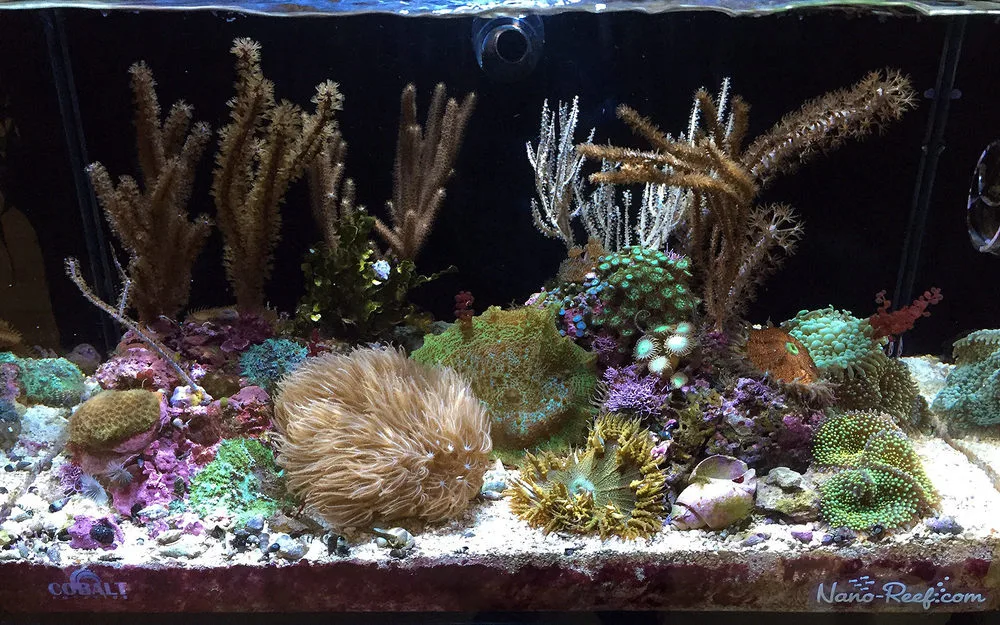Stunning 18-Gallon Reef Tank – billygoat's TOTM | NanoReef

Tank Specifications
Volume: 18 Gallons / 68 Liters
Dimensions (L × W × H):
20.0" ×
16.0" ×
13.0"
50.8cm ×
40.6cm ×
33.0cm
Equipment List
- Salt: CaribSea
Frequently Asked Questions
How often should I perform water changes in a reef tank?
It is recommended to perform a water change once a week, typically around 15% of the tank volume. In this case, the owner performs a 2-3 gallon water change weekly, adding or removing water from the rear chambers to minimize disturbance to the livestock.
What is the best way to clean the tank's glass?
Using a glass scraper like the Flipper Nano works well for algae removal. It's advised to scrape the glass periodically, aiming for at least once a week, or once every two weeks depending on your tank's algae growth.
How should I clean my equipment?
Every 3 or 4 months, disassemble and clean the return pump. Soak the wavemaker in a vinegar solution for cleaning. Additionally, every 6 months, it's beneficial to thoroughly clean the heater.
How do I maintain proper water parameters in my reef tank?
You should regularly test your water parameters, particularly alkalinity, calcium, and magnesium. The owner tests alkalinity about twice a month and doses BRS Alk daily and BRS Calcium weekly, which helps maintain these important levels.
What is the importance of mechanical and chemical filtration?
Mechanical filtration, such as filter floss, removes physical debris and particulates from the water. It’s recommended to change this weekly. Chemical filtration (like using BRS Rox carbon) removes impurities and is typically changed every 2-4 weeks, helping maintain water clarity and quality.
How often should I feed the fish in my reef tank?
Feed your fish once a day. A combination of high-quality flakes or pellets and occasional frozen food such as mysis shrimp is beneficial to provide a balanced diet.
How do I feed corals effectively?
Target feed corals such as gorgonians once or twice a week using a mixture of Reef Roids and Brightwell PhytoGold-M, along with a few drops of Selcon. This enhances their growth and health.
What types of coral can I include in a Caribbean biotope?
The owner successfully maintains various gorgonians, soft corals like Ricordea and Mushrooms, and stony corals such as Hidden Cup Coral and Star Coral, all native to the Caribbean, demonstrating that a diverse selection of compatible species can thrive together.
How do I choose fish for a reef tank?
Select fish that are peaceful and compatible with the rest of your livestock. The owner has chosen species like Atlantic Chalk Bass, Masked Goby, and Yellow-headed Jawfish, which are suitable for smaller tanks and coexist well with corals.